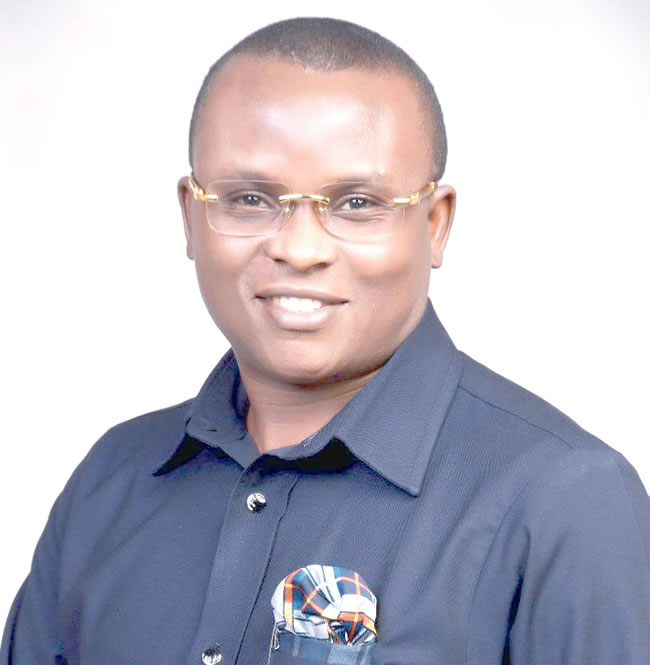In this interview with CHRISTIAN APPOLOS, a regular migration advocate and founder of the Black Ancestral Native Communities (BANC), Dr Chibuzor Onyema, speaks on the urgent need for Nigerian government to move beyond rhetorics to tackle unemployment and migration crises through intentional industrialisation. Drawing from his experience working with victims of irregular migration and his advocacy efforts, he explains why thousands of Nigerian youths continue to flee the country and what real solutions the government must pursue. He also weighs in on the quality of leadership Nigeria needs as the 2027 elections approach. Excerpt:
What do you consider to be the most pressing problem facing Nigeria today?
Education is important, and I appreciate the efforts of our current president to ensure that Nigerian children are going to school. That’s fundamental. However, if we’re being honest, Nigeria’s problem today is no longer primarily about education. Our biggest crisis now is industrialization, or more accurately, the lack of it.
We have schools, yes. We have graduates; brilliant, talented young people. But where are the industries to absorb them? Where are the factories, the companies, the production hubs? Industrialisation is the missing link that ties education to employment and economic empowerment. Without industries, education leads nowhere but to frustration and, ultimately, to the dangerous quest for greener pastures abroad.
I have consistently advocated for what I call aggressive, community-based industrialisation. This means every local government, every community should have its own form of industry — small-scale manufacturing hubs that create jobs for locals where they live. When people are employed within their communities, they are less likely to consider leaving, especially not through irregular and life-threatening routes. That is how we reduce the so-called ‘japa’ phenomenon and rebuild our economy from the ground up.
Why do you think Nigerian youths are risking their lives through irregular migration, despite knowing the dangers involved?
The answer is simple but painful: hopelessness at home. Last year, in Abuja, we convened a conference tagged The Japa Conundrum. The aim was to understand this dangerous trend of migration and why our young people leave in droves, even when they are fully aware that they could lose their lives on the journey.
People cross the Sahara Desert. They drown in the Mediterranean Sea. I used to think those were the worst routes until I heard stories of Nigerians, Senegalese, and Gambians going through the Kalahari Desert to get to South Africa. That desert is home to some of the worst wild animals in the world, and it’s on record that many people set off in hundreds, only for a handful to arrive alive.
What does that tell you? It tells you these young people believe death is preferable to the life they are living here. That is tragic. More of our young people die on these irregular migration routes than in wars. The root cause? Lack of opportunities at home. If people have employment, if they are gainfully engaged and can live with dignity, why would they risk their lives for an unknown future abroad?
You’ve emphasised industrialisation as the solution. Can you explain the kind of industrialisation you are proposing?
Yes, I am proposing what I call Circuitous Industrialisation. This approach focuses on building small, community-based industries in every locality. They may not be large factories like what you’d find in industrialized nations, but they are strategically placed to meet the economic needs of their communities. These industries should be manufacturing-driven, producing goods and services locally, employing people locally, and contributing to local economies.
Why is this important? Because employment is tied to where people live. If you have industries in every local government, young people won’t need to migrate to urban centres in search of work, much less leave the country. They can work where they live, contribute to their communities, and build wealth at home.
This is not rocket science. It has been done before in Nigeria and can be done again. Industrialization will keep our youths engaged, reduce irregular migration, and spur true economic development.
What is your assessment of government efforts like the Technical Vocational Education and Training (TVET) and the Renewed Hope Employment Initiative (RHEI)?
These initiatives are commendable steps. TVET and RHEI, if properly implemented, can address some of the immediate gaps in skills acquisition and employment. However, my fear, and I say this with caution, is fraud and mismanagement. Often, money meant for youth empowerment ends up in private pockets, used to buy houses abroad or enrich a few individuals, to the detriment of the many.
I strongly urge the President to ensure these initiatives are transparent, monitored, and devoid of corruption. Let them be part of the many steps required to rebuild this country into one where young people no longer feel the need to run. Nigeria can succeed with these programs if there is the political will to implement them sincerely.
For those unable to find work locally, what practical solutions can the government offer?
For those who cannot be absorbed locally, the government should actively create safe, legal, and structured pathways for migration through labour exchange programs. This can be done through bilateral agreements with countries that need skilled workers. It’s already being done in some parts of the world, and Nigeria can tap into such opportunities for its surplus labour force.
This is how migration becomes dignified. People can go abroad with proper contracts, work permits, and the assurance of good wages. not through traffickers or fake agents.
Can you share some of your efforts in addressing youth unemployment and irregular migration?
Absolutely. Just recently, my NGO, International Returns and Reintegration Assistance (IRARA), signed an MoU with Ajimobi Technical University in Ibadan and a Belgian organization to train youths in digital and practical skills. These include technology, innovation, and skills relevant to today’s economy.
Our goal is to create opportunities within Nigeria so that our young people have no need to seek dangerous alternatives. Nigerians are solution providers. Yes, there are a few bad eggs involved in crimes like cyber fraud, but they are insignificant compared to the majority of hardworking, brilliant youths just looking for a chance.
Why do you think irregular migration persists despite these facts?
Because many youths have fallen victim to lies and false hope. Some go to visa agents and say, “Give me a visa to anywhere.” Imagine that level of ignorance. When asked what job they plan to do there, they say, “Anything.” There’s no country called ‘Anywhere,’ and there’s no job called ‘Anything.’ But these scams thrive because desperation blinds reason.
When they reach these foreign lands, they realize the promises were lies. Some are enslaved, trafficked, and abused. I have a cousin trafficked from Edo State who now has twins by a man she cannot even account for. When I asked if she wanted to return home, she said, “If home is still what it was when I left, I’d rather die here than return.” That breaks my heart.
We must make home better: a place where people want to stay. Home is where you are not discriminated against, where your people watch out for you. Abroad, you are always a stranger. Home is safety. Home is dignity.
Beyond industrialisation, what other structural problems contribute to Nigeria’s stagnation?
Our biggest structural problem is nepotism and corruption. In Nigeria, it’s about who you know, not what you know. Before you get what is rightfully yours, people ask: “Who is your uncle? Who recommended you? What is your surname?” Even when you’re qualified, you may never be shortlisted unless someone pulls strings.
Nigeria has opportunities, but our youths are denied access through deliberate gatekeeping. This system breeds frustration, crime, and migration. It must end.
ALSO READ: Japa: Expert advocates solution-based industrial systems to tackle unemployment
WATCH TOP VIDEOS FROM NIGERIAN TRIBUNE TV
- Relationship Hangout: Public vs Private Proposals – Which Truly Wins in Love?
- “No” Is a Complete Sentence: Why You Should Stop Feeling Guilty
- Relationship Hangout: Friendship Talk 2025 – How to Be a Good Friend & Big Questions on Friendship
- Police Overpower Armed Robbers in Ibadan After Fierce Struggle






